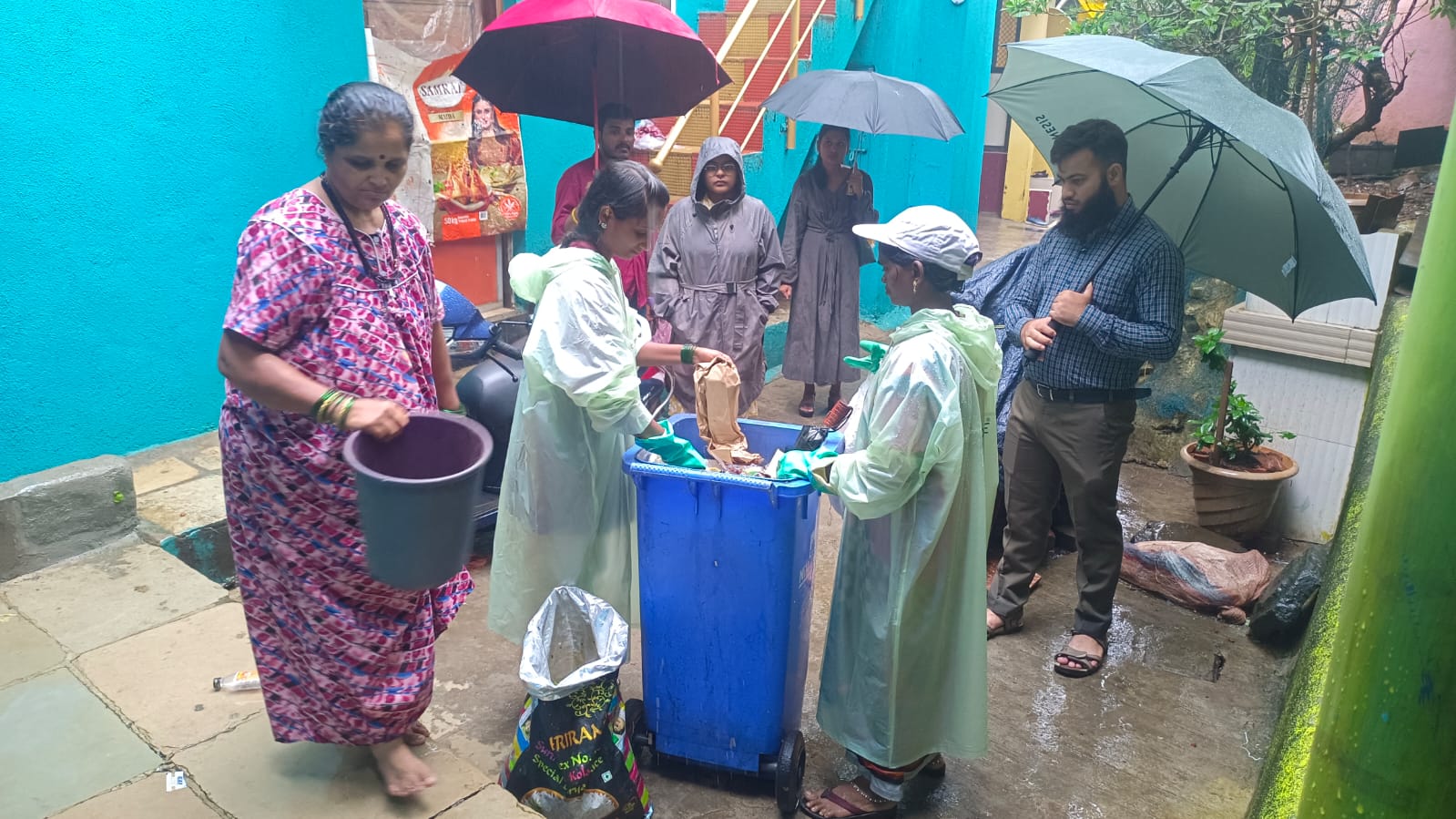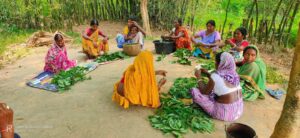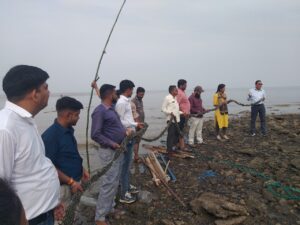In Mumbai, the neighborhood of Worli is renowned for its posh reputation within the island city. However, nestled in the shadow of this bustling area lies Worli-Koliwada, a village where a significant part of the traditional fisherman community resides. Their homes sit on the edge of the Arabian Sea, and for generations, they’ve held a deep belief that anything coming from the ocean should return to it. Initially, their waste consisted mainly of fish remains and easily biodegradable materials, a practice in harmony with nature. Over time, though, their waste began to include non-fish-related items, posing a challenge.
Adding to their predicament is their cramped living conditions. Typically, four to five people share one room, making it uncomfortable to store waste due to the limited space and the ensuing odors. Moreover, their religious beliefs and the infrequency of municipal waste collection prevented them from disposing of waste in the city’s vans, which visited only once a day.
Collection of waste
Recognizing this issue, a corporate entity stepped in with an intervention designed for a sustainable solution. They understood the importance of treating the community with sensitivity and empathy. Thus, they launched a door-to-door waste collection initiative in collaboration with the Mumbai Municipal Corporation (MMC) and one other entity (NGO).
Picture 1 & 2: Waste collection
Waste collection occurred from 8 AM to 12 PM, avoiding the MMC’s schedule, ensuring that residents didn’t have to store waste for extended periods. This initiative extended to both households and even the commercial shops, resulting in impressive results over two years: 704,958 kg of wet waste and 77,075 kg of dry waste collected.
Awareness
Community members were educated on the importance of not polluting the ocean and the practice of waste segregation through both online and offline sessions. They conducted three offline sessions per week and one per month, spreading awareness even in schools. They are using rallies, street plays, and distinctive shirts representing different bin colors to spread awareness and making sure that it sustains in people’s mind for long. Group presentations at community meetings were also employed. These efforts yielded significant results, with 81% of people now providing segregated waste to collectors, leave only 5% unaware due to the community’s constant influx of new members.
Waste management
The collected waste is sent to a waste management center where it is weighed and sorted manually. Wet waste is processed into manure, and dry waste is sold to shops at rates ranging from Rs. 10 to Rs. 20 per kg and 5000/ton as per the quantity. Currently, 85% of dry waste and 35% of wet waste collected have been processed. The program adopted a collaborative approach by partnering with Coca-Cola and UNDP, securing grants and support for waste management.
Picture 3 & 4: Waste management process
Financial sustainability
The waste management center generates income by selling waste and as well as by receiving grants. Additionally, the program has earned Rs. 4,39,312 by branding and selling products such as manure, along with selling dry waste to various collectors.
Conclusion
This multi-stakeholder approach has significantly reduced waste entering the sea and minimized landfill usage in the area. Waste management not only promotes recycling but also serves as a source of income for the organization operating in the community. This project serves as a model for solving present issues while ensuring long-term sustainability by raising awareness and promoting modern habits. It focuses on the community’s convenience and sensitively introduces them to these practices. With a vision for the future, this approach can be replicated in multiple areas of India. Additionally, recognizing the importance of employee motivation, the program provides incentives and rewards to keep workers aligned with its goals.




